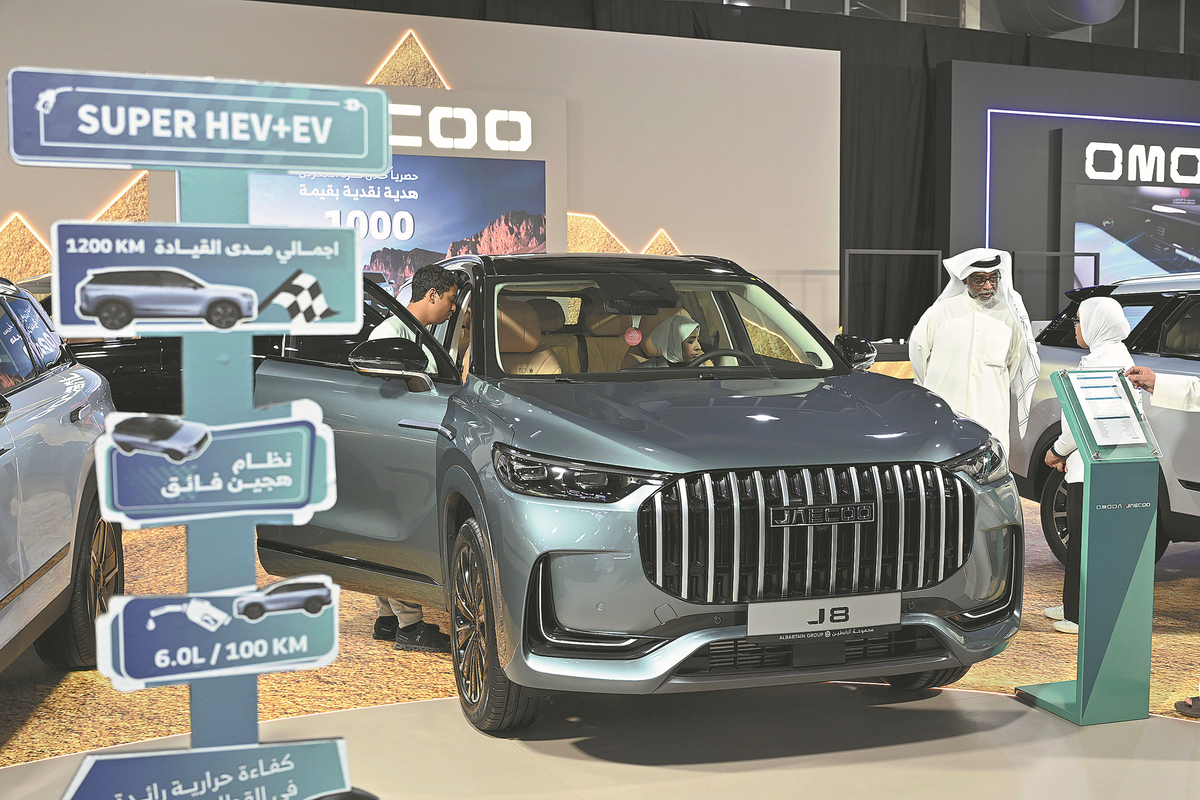HK stock exchange driving up NEV makers
Nation's automakers raise investment for product innovation and overseas expansion


Automakers are flocking to Hong Kong initial public offerings in a strategic push that not only advances their global expansion but also reflects the capital market's recognition of China's new energy vehicle industry.
These moves come as companies scramble for capital to accelerate NEV development, expand overseas production, and compete in the fast-evolving smart mobility sector.
Leading this trend is Chery Automobile, the 28-year-old Anhui-based automaker that made a strong Hong Kong debut on Thursday. After raising HK$9.1 billion ($1.16 billion) — 2025's largest automotive IPO in the city — its shares jumped to HK$34.16 on the day, roughly 11 percent above its IPO price of HK$30.75.
Its 2024 performance underscores its market strength: it sold 2.3 million vehicles, ranking second among domestic brands and 11th globally. Notably, data from consultancy Frost and Sullivan show Chery is the only automaker to post over 25 percent annual growth across all key categories: 265 percent for NEVs, 29 percent for fuel vehicles, 55 percent for domestic sales, and 35 percent for overseas sales.
With a brand portfolio including Chery, Jetour, and iCar, the company has earmarked its IPO proceeds for priorities critical to its NEV and global expansion. Specifically, 35 percent will fund research and development for new passenger vehicles to broaden its product range, while 25 percent will go toward developing next-generation vehicles over the next three years.
Chery is also doubling down on overseas growth, building on its 22-year streak as China's top car exporter. Its products are now sold in over 100 countries.
In 2024, it launched its Omoda brand in the United Kingdom, followed by Jaecoo in January 2025. It also plans to enter Britain's competitive SUV market with two new Chery-brand models.
As outlined in its prospectus, Chery aims to roll out at least eight NEVs by the second half of 2025, covering plug-in hybrids, range-extended EVs, and pure EVs. Priced from 100,000 yuan ($14,000) to 400,000 yuan, these vehicles target annual sales of more than 400,000 units.
An investment banker involved in Chery's underwriting noted a key shift in market perception: "Chery is no longer viewed as a 'traditional automaker' but a 'global technology company'. Investors value its explosive NEV growth potential and overseas market reach as core drivers of long-term value."
Chery is not alone in this Hong Kong IPO wave. Chinese media reported last week that Avatr Technology — a joint venture between Changan Automobile, tech giant Huawei, and battery leader CATL — plans to file for a Hong Kong listing in the fourth quarter and complete the process by the second quarter of 2026.
The automaker revealed a new strategy earlier this month, aiming to achieve 400,000 global vehicle sales and 100 billion yuan in annual revenue by 2027, 800,000 sales by 2030, and a long-term goal of 1.5 million sales by 2035.
Product-wise, it will deepen cooperation with Huawei and CATL to launch five models by 2026 and 17 models by 2030, covering sedans, SUVs, MPVs, and sports cars.
Avatr also aims to expand its overseas presence to more than 80 countries by 2030 with over 700 sales channels.
For established industry players like Dongfeng Motor, a more tailored strategy has emerged — one that balances the restructuring of the parent company with the capital needs of its NEV-focused subsidiary.
Earlier in August, Dongfeng announced it plans to delist from Hong Kong via privatization, while its NEV subsidiary Voyah plans to list in the city.
This allows Voyah to access global capital and enhance its international brand visibility, aligning with Dongfeng's focus on premium NEVs.
Since July, Voyah has maintained intensive product launches, rolling out one model per month, underscoring the six-year-old brand's ambition to expand its market reach.
As technological competition in the NEV industry is increasingly intense, with automakers ramping up their investments in research and development, the public listing can alleviate the financial pressure on automakers for R&D, help companies enhance their international brand recognition and attract the attention of global investors and consumers, industry experts noted.
The Hong Kong Stock Exchange, with its international capital platform, flexible listing mechanisms, and policy advantages, serves as a crucial springboard for car companies aiming for technological upgrades and global expansion.
Companies can also obtain foreign exchange funds such as US dollars and Hong Kong dollars, which can be directly used for overseas factory construction, channel expansion, and marketing. This helps reduce the cost and complexity of cross-border capital operations.
It is foreseeable that, driven by the dual forces of the new energy technology race and global market expansion, the Hong Kong Stock Exchange will continue to witness the collective rise of Chinese automotive brands, experts added.
caoyingying@chinadaily.com.cn




































